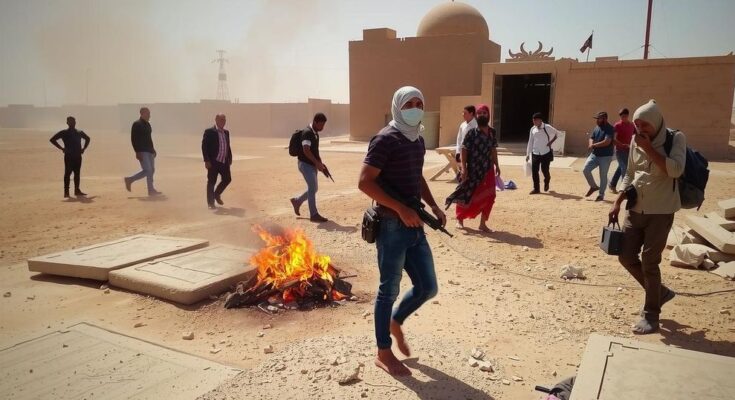The Houthi militia in Yemen has escalated its hostilities against Israel with numerous missile strikes, influenced by Iranian support. Israel’s retaliatory action against Houthi infrastructure underscores the severity of this aggression. Historical parallels highlight the consequences faced by groups like Hezbollah when challenging Israel. The Houthis are urged to reconsider their alignment with Iran and prioritize the well-being of Yemen amidst the ongoing conflict, lest they face significant devastation.
The Houthi militia in Yemen has increasingly pursued a perilous strategy, emboldened by their alignment with Iran. In a mere three weeks, they executed at least 15 missile strikes aimed at major Israeli cities, ostensibly under Iranian encouragement. This state-sponsored aggression provoked significant retaliation from Israel, which targeted critical Houthi infrastructure, including Hodeidah Port and Sanaa International Airport. Historical precedents indicate that the Houthis, much like their Iranian ally Hezbollah, face dire consequences for such confrontations.
Iran’s backing may have emboldened the Houthis, yet their actions overlook the lessons learned from similar confrontations in the region. The assassination of Hezbollah leader Hassan Nasrallah, which marked a pivotal setback for the group, illustrates the risks of provoking Israel. Rather than learning from these outcomes, the Houthis have allowed themselves to be entangled in their Iranian patron’s hegemonic ambitions, with reports indicating a boastful claim of 13 attacks on Israel within ten days.
Coupled with unrest at home in Iran, where economic discontent simmers, the Houthis may find themselves on shaky ground. The Iranian regime—a crucial supplier of support to the Houthis—is increasingly viewed unfavorably by its populace, prompting questions about its capacity to sustain its proxies. Former Houthi spokesperson Ali Al Bukhari has pointedly criticized their unquestioning alignment with Iran, suggesting that a reevaluation could be in order.
The consequences of continued aggression are clear, with Israel signaling it will respond decisively to further provocations. The indefinite nature of war underlines the importance of pursuing peace over conflict. The Houthis have a critical choice: continue their aggressive path or pivot towards peace efforts for the sake of the Yemeni people, who have disproportionately suffered under ongoing hostilities. History underscores the futility of violent escalations against Israel; should the Houthis persist, they risk their own demise amid escalating Israeli reprisals.
The time for change is now, as further hostility will likely lead to devastating repercussions for the Houthis. It is imperative for them to reassess their strategic choices, prioritizing the humanitarian crisis in Yemen over allegiance to an increasingly beleaguered Iran. In doing so, they have the opportunity to seek reconciliation and potentially alleviate the suffering of their own people, rather than perpetuating a cycle of aggression that could ultimately lead to their destruction.
The ongoing conflict in Yemen involves various factions backed by regional powers, notably Iran and Saudi Arabia. The Houthis, an insurgent group, have positioned themselves as adversaries of the internationally recognized Yemeni government, leading to a protracted humanitarian crisis. The group’s recent missile attacks against Israeli targets, purportedly at Iran’s behest, signal a significant escalation in their military agenda, raising concerns about regional stability and the potential for wider conflict involving Israel and its neighbors.
In conclusion, the Houthi militia’s aggression presents a dangerous trajectory that risks severe retaliation from Israel. As they continue to align with Iran amidst domestic unrest there, they must reassess their strategies and prioritize the welfare of the Yemeni people. The historical patterns of confrontation showcase a pattern of dire repercussions, compelling the Houthis to consider diplomacy over hostility before it is too late.
Original Source: www.jpost.com




